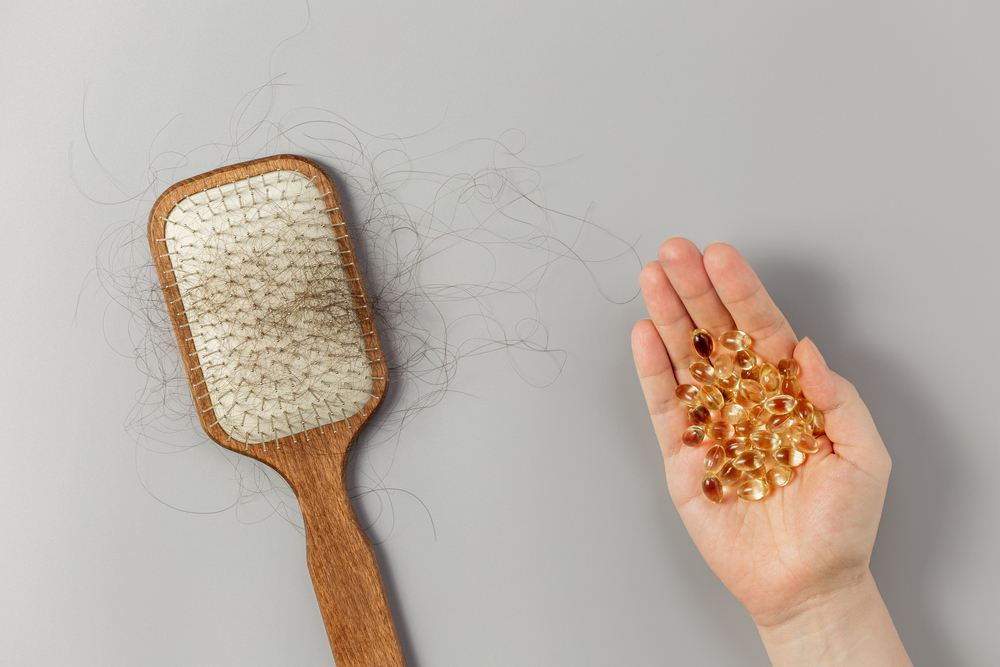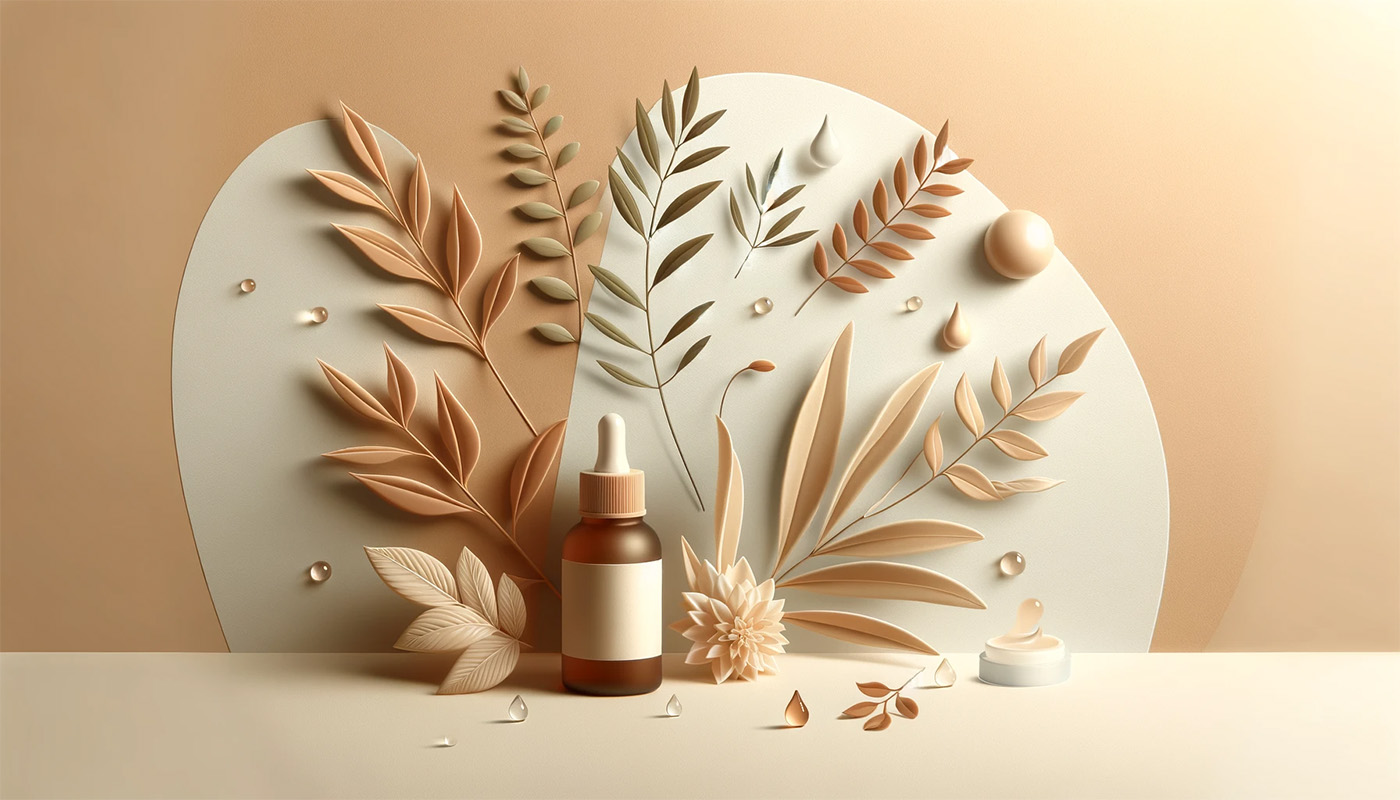
Why NOW Is the Best Time to Sell Hair Loss Supplements
Nov 5, 2021 2 minute Read
Nobody wants to lose their hair, but factors in life still put many on the path of baldness. Luckily, we’ve come to an era where hair loss supplements are readily available to anyone suffering. People genetically predisposed to losing their hair can receive specific treatment that differs from those who lose their hair from stressors or stressful events, bad hair or scalp care, and even childbirth.
All of these factors have been known for years now, but what makes right now the best time to sell hair loss supplements is the pandemic. With a changing world, so changes the needs of the consumer. It’s an unfortunate time but one that gives hair loss supplement sellers a position for growth—if you can capture the audience.
The Search for Hair Products Has Increased Since the Initial Quarantine
Sometimes referred to as “hair wellness”, these are products that stop hair loss (alopecia) and promote hair regrowth like supplements, oils, medications, topical products, ingestible products, and shampoos/conditioners.
Why the upsurge in online searches?
The bigger question might be, “why is my hair falling out?” For consumers, it’s a terrible question to ask. For sellers, it’s the perfect time to provide the solution (your product line).
Stress-related hair loss has been inflicting many people across the world in this time. From spending too much time with the family, to being too far away from the family. Stress from losing a job, working from home, or in a make-shift office. Experts say pandemic stress from the coronavirus lockdown is cited as a leading cause for hair loss over the past year. Yes, the world is normalizing to an extent, but some effects are permanent. And even if it’s not permanent, nobody wants to walk around with thin hair or bald spots that could last for months or even years. And the stress of simply having hair loss can cause even more hair loss akin to excessive shedding (telogen effluvium). What a cycle.
Self-care is rising.
Not only for hair, but for full body care, consumers are paying more attention and more money. From all-natural to lab-derived, wellness brands of all kinds are rising in popularity. Facial skincare, body care, and hair care startups have taken over. And the best part is you don’t have to be a dermatologist to take part.
For startups of this nature, it’s really the perfect time to make a name for themselves. Since people could not (and cannot) get products from stores as freely as pre-pandemic life, online shopping is the way forward.
Depending on the demographic, marketing for these startups have been a since. Instagram shows advertisements seemingly every two posts, and with shopping built into the app, it’s easier than ever to sell. This goes for nearly all social media platforms, not just Instagram. The point is that on the digital front, there’s always a place to thrive if you can market your brand correctly.
Self-care in 2021 could also stem from simply having more time at home with more time to pay attention to your hair health. More opportunity to look in the mirror. Maybe the likeliest of all, more incentive to look your best for when you do finally emerge from your home.
The hair care brand, Keeps, saw a 77% rise in new customer revenue in a 4-month period towards the beginning of the pandemic. Nutrafol, a hair growth supplement brand, saw an increase of 61% in sales specifically for their women’s supplement in Q2 compared to Q1 of 2020. These are just two popular brands who have received incredible gains in the past year. Imagine what sales could look like for your own brand.
Traditionally, hair loss and hair loss treatment have been associated with men. Today, companies are realizing that women can also suffer from this condition. The market has expanded to include all people, though treatment varies between the sexes, the availability of it shouldn’t.
Avoiding FDA Conflicts When Choosing Ingredients
This mid- to post-pandemic opportunity is here to stay for online retailers of hair wellness products. But it can be a rocky road when deciding how to market your products and what ingredients to include in them.
What FDA-related problems could I run into with hair care supplements?
The FDA does not dabble into cosmetics, including haircare products like shampoos and conditioners. There are two exceptions. The first is if your product contains dyes, then it needs to be approved only for that dye additive. The second is hair loss prevention or growth chemicals—but not all of them.
Ingredients such as biotin, minoxidil (yes, this works for women, too), finasteride, and dutasteride are FDA-approved for use in treating hair loss. But that doesn’t mean your product is approved. So if you use these ingredients, you need to get approval by the FDA to sell it. Your product is regulated by the FDA, so even if they’ve already approved the active ingredient you’re using, you still need to pass an inspection to ensure the safety and effectiveness of your hair loss solution.
Then there are natural ingredients. A lot of sellers go for natural DHT blockers to prevent hair loss, natural hair thickening oils, and similar products. These don’t need to be approved by the FDA. BUT—and this is a big but—you cannot claim the effectiveness of your product. You have to hint at it, use testimonials, and beat around the bush. Otherwise you’ll face serious penalties.
That leads into the second big issue: labeling. Be aware of what regulations surround labeling for your products. What you’re allowed to say, promote, and claim depend on what’s been approved for your product. Claims like “our product will prevent your hair from falling out” are not allowed because there is no guarantee. Effects differ for each user. Some people will see results, others won’t, and the rest are somewhere in the middle. It’s more appropriate to say “98% of users saw an increase in hair growth”, or something along these lines.
Vitamins and compounds don’t need approval.
Biotin is a common compound found in many hair wellness solutions. Vitamins like B-complex and vitamin D are also common, and provide great potential for results. Of course, you have your product and your ingredients already. We just want to inform you that if you use these types of ingredients in your product, you can use it in your promotional material. Consumers already like these types of ingredients with hair loss prevention, so you don’t have to work too hard to say what your product is capable of.
If you’re wondering why your hair supplement isn’t put through the ringer if it contains only compounds and vitamins, it’s because supplements are regulated as food and not drugs.
Be Bullish in the Market—You Have High Competition
With companies understanding how to maneuver through FDA regulations, testing, and approval as well as ease of access to high-performing ingredients, many hair care brands are on the scene.
Target the right demographic.
A good strategy forward is to pick a demographic and use your tunnel vision to ignore the rest and hit your target. If you want to broaden your market without losing your current customer base, you can rebrand and replicate your products to specifically target another demographic. You’ll have a second sales funnel without the expense of recreating products from scratch.
Also, with replicating your products to attack a new demographic, you can focus attention on other ingredients. For example, 25-35 year old men are more likely in preventative measures to hair loss, so your product focuses on ingredients that promote hair health. For men 36 and up, they are likely more interested in stopping hair loss in its tracks and promoting new hair growth. The same product can do both of these things, but you can advertise and label it according to who you want to buy it.
Sell a lifestyle, not just a product.
Call it what you want, but people want their hands held and walked through the steps to see results. Sell that as a lifestyle. Whether you have a subscription-based sales model or not, you can still create an ecosystem in which consumers live and breathe.
Of course, subscriptions are one of the best ways to lock them in. You can also keep customers well-informed with regular blog posts, emails, statistics, updates, and new products that fit their needs. New products could even target different types of hair loss, temporary hair loss, and hair shedding without much change to your existing concoction. And blogs or emails could relate to lifestyle changes, like relieving emotional stress, balancing stress levels, understanding the hair growth cycle (growth phase, resting phase, shedding phase), how to recover from imbalances in hormones, and dealing with large amounts of hair or clumps of hair falling out. There’s always a way to keep people locked in without the world being in lockdown.
Get Payment Services to Match Your High-Risk Business
The supplements industry is high-risk, and so are subscription services. If this like you or your business plan, you need to get a high-risk merchant account. Without one, you won’t meet your earnings expectations, nor grow your business or give your customers the full head of hair they deserve.




